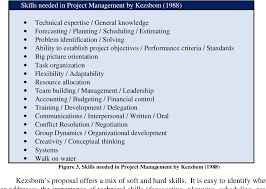
Consulting jobs at entry level offer many benefits. For example, you can book your favorite boutique hotel or attend all-expense-paid retreats, all while enjoying the perks of your career. The benefits are numerous, so you can either start a career, advance your current one, make life-long memories, or even upgrade your current one. Below are some top benefits of consulting jobs. Read on to learn more about entry-level jobs in consulting.
Qualifications
While certain qualifications are more desirable to employers than others, experience is what makes you stand out. This includes diverse experience that includes business knowledge, team-building skills and analytical thinking. In addition, experience in various business areas and an understanding of financial systems will be useful. However, you don't need to have any experience in the commercial world to get a job as a consultant. Higher GPA graduates are more likely to be interviewed and hired by more senior consultants.
Entry-level consultants may not only have a professional qualification but also have extensive experience working in the business sector. A majority of consultants have attended a graduate-level training program in a large blue-chip firm. Experiential hire entry-level candidates will have a broader background. Other qualifications are required to be an entry-level consultant: These prerequisites must be met by all applicants.

Career path
It's possible to search for entry-level positions in consulting if you always had a dream of being a consultant. There are many benefits and opportunities for entry-level positions in consulting. Consultant jobs allow for extensive learning and offer a wide variety of work. Those who become consultants must have an understanding of marketing to target consumers and how to increase revenues while reducing costs. Once they have these skills, they are able to move on to other roles in the company. Many entry-level consulting jobs are available. Once you graduate from college, you may be able to start working for a customer.
Analysts typically have between one and two years of experience. They will enter the consulting business at the Associate Consultant level or Business Analyst level. Although an MBA or advanced degree-holder may be able to get into the consulting industry at a higher rank, it is not common. Associates typically enter the industry as Associate Consultants, and can progress to senior positions. Management consulting can be a great option for someone just starting their career.
Compensation
There are several ways to negotiate compensation for entry level jobs in consulting. Many firms offer high salaries to recruit the best people and keep them. As a way of attracting high-performing consultants, some offer sign-on bonus to keep them on the job. Sign-on bonuses may be required by others. Before you accept a job, be sure to read all details about the compensation. For entry-level roles, the compensation packages are typically determined by consulting firms.
If they're fortunate, a first-year consultant may earn more that $60,000 These salaries don't differ much from those for middle-class jobs. Remember that consultants work long hours, and may only earn a few hundred million dollars annually. Even if you have a high-paying job at the beginning, you can expect to work long hours. This can be compensated with performance bonuses, which can be as high as 25% to 30% of your base salary.

Hourly rate
In the world of consulting, the hourly rate varies greatly, depending on the firm. Hourly rates at Big 4 firms can start at $350 and go up to $1,000. Entry-level consultants are often paid by partners. A mix of resources will be available to smaller boutique firms, with hourly rates ranging from $250 to $400. Most independent management consulting firms charge between $100-250 an hour. We'll be discussing the various types of consulting as well as the hourly rates.
BCG consultants typically make $161,700 annually. This includes a base salary of $165,000, $41,500 in bonus payments, and $9,000 profit sharing. Some other countries in the developed world have higher salaries than Pakistan, which is comparable with Russia and the UK. The hourly rate in India is as low at $4. Bain & Company could pay as little as $15 an hour for entry-level consultant positions.
FAQ
What is the average salary of a consultant?
While some consultants may make over $100k per annum, most consultants earn between $25k and $50k. The average consultant salary is $39,000 This includes hourly as well as salaried consultants.
Salary is dependent on experience, location and industry. It also depends on whether the consultant works from home or has a remote office.
Is it possible for a consulting business to be run from home?
Absolutely! Actually, this is what many consultants already do.
Working remotely is a common way for freelancers to work. They use tools like Skype, Trello (Slack), Trello, Basecamp and Dropbox. To avoid being left out of company perks, they often set up their own office space.
Some freelancers prefer working in cafes and libraries over traditional offices.
Some choose to work remotely because they are surrounded by their family.
Of course, working from home has its pros and cons. But if you love your job, it's definitely worth considering.
Who hires consultants
Many organizations hire consultants to assist with projects. This includes small businesses, large corporations and government agencies.
While some consultants work for these companies, others are freelancers. The process of hiring depends on the size and complexity the project.
Many rounds of interviews are required when hiring consultants. Then, the final decision will be made about who you believe is best for the job.
What does it mean to be a consultant?
Consultants are people who provide services to others. It's not a job title. A consultant is a role that helps others achieve their goals. This is done by helping others understand their options and making the right decisions.
Consultants can help you solve problems or overcome challenges when working on projects. Consultants can also offer advice and guidance regarding how to implement these solutions.
A consultant should be able to answer questions about anything related to business, technology, finance, law, management, leadership, strategy, operations, customer service, human resources, etc.
How much does it cost for a consultant to be hired?
There are many factors that go into the cost of hiring a consultant. These are:
-
Project size
-
Time frame
-
Scope of work
-
Fees
-
Deliverables
-
Other considerations like experience level, geographical location, etc.
Statistics
- So, if you help your clients increase their sales by 33%, then use a word like “revolution” instead of “increase.” (consultingsuccess.com)
- Over 62% of consultants were dissatisfied with their former jobs before starting their consulting business. (consultingsuccess.com)
- 67% of consultants start their consulting businesses after quitting their jobs, while 33% start while they're still at their jobs. (consultingsuccess.com)
- WHY choose me: Why your ideal client should choose you (ex: 10 years of experience and 6-week program has helped over 20 clients boost their sales by an average of 33% in 6 months). (consultingsuccess.com)
- On average, your program increases the sales team's performance by 33%. (consultingsuccess.com)
External Links
How To
What does a typical consultant's day look like?
Your work type will determine the length of your day. You will be spending time researching, planning new ideas, meeting with clients, and creating reports.
You'll often have meetings with clients where you can discuss issues and solve problems. These meetings can be done over the phone or via email.
You may also be asked to prepare proposals, which are documents outlining your ideas and plans for clients. Before presenting these proposals to clients, you will usually need to discuss them with a colleague or mentor.
You will need to create content after all your planning and preparation. For example, you could be writing articles, designing websites, creating videos, editing photos, or conducting interviews.
You may need to conduct research depending on the scope of your project to find relevant statistics and figures. This could include finding out how many customers your company has and whether they purchase more than one product.
Once you have enough information, it is time to present your findings and conclusions to clients. Your findings can be presented orally or written.
You must also follow up with clients following the initial consultation. You might contact them regularly to check on their progress or send them emails to confirm they have received your proposal.
While this can be a slow process, it's essential to remain focused and maintain good working relationships with clients.